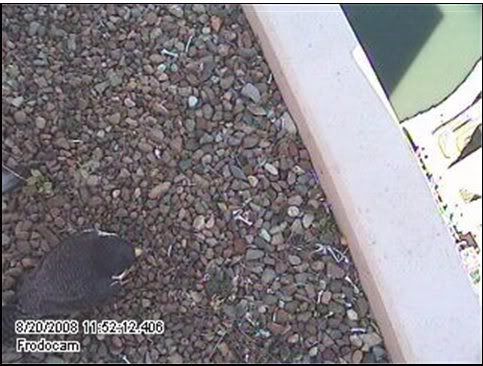
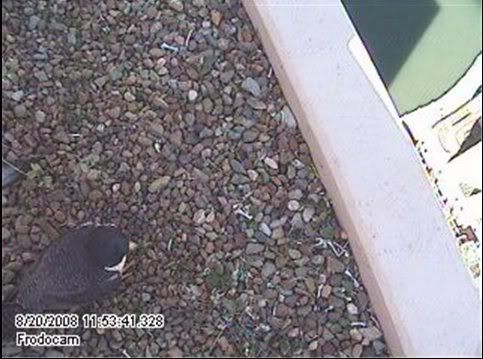
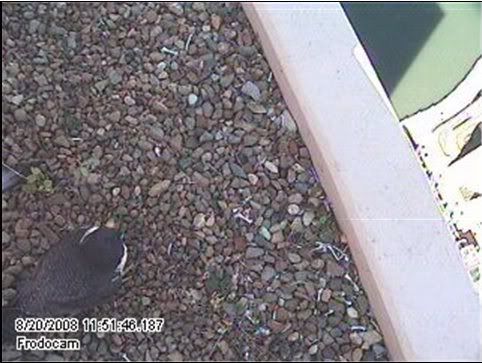
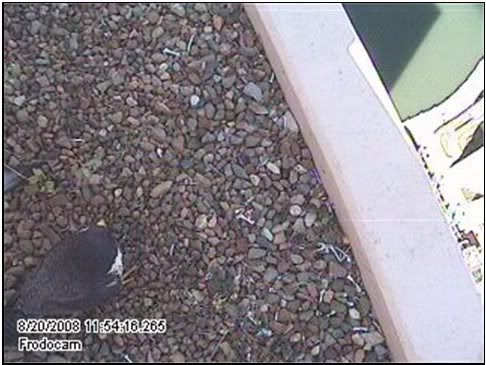
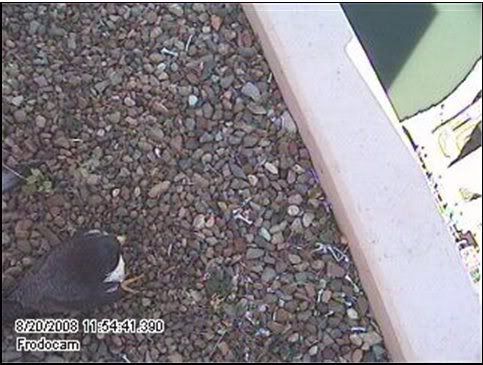
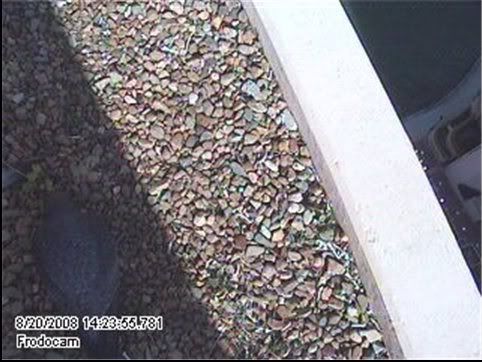
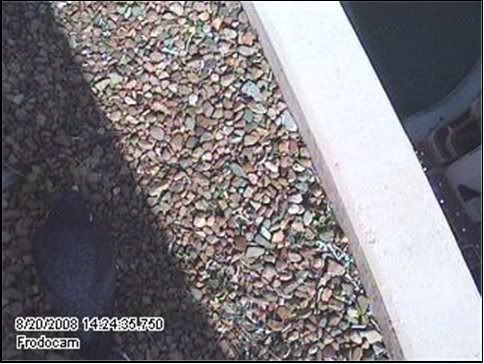
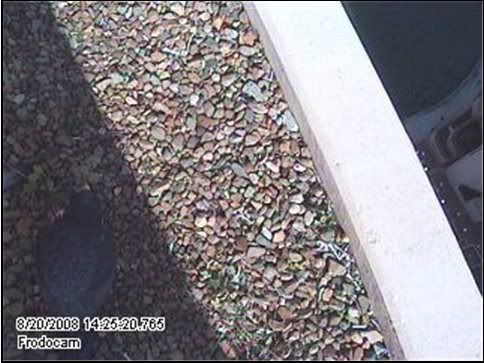
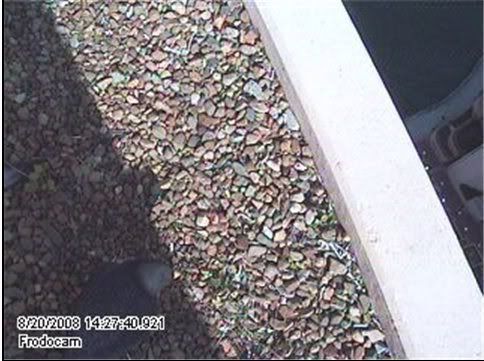
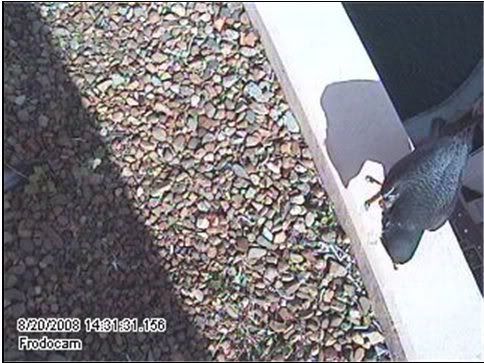
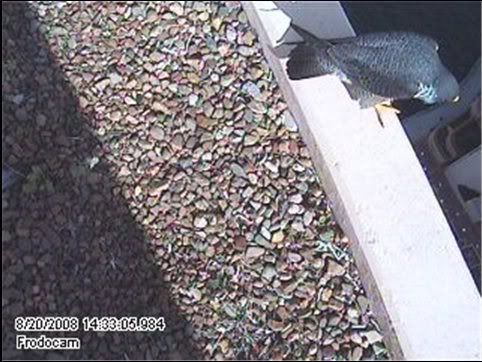
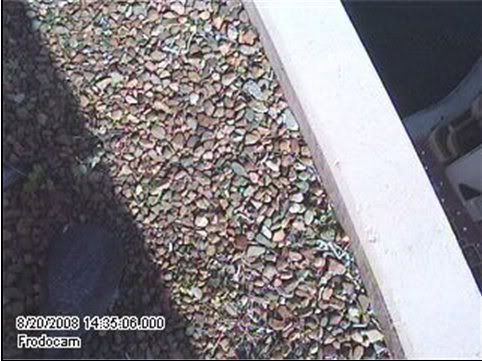
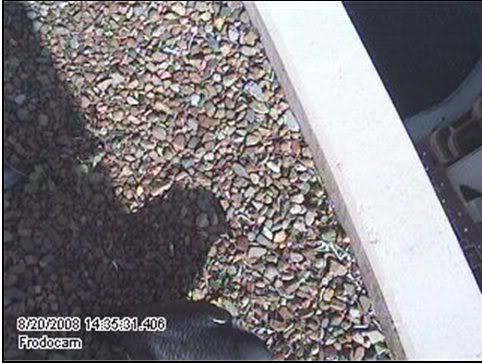
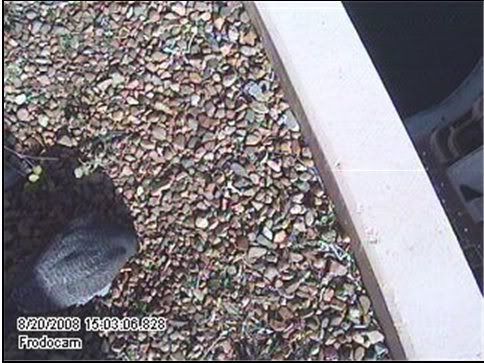
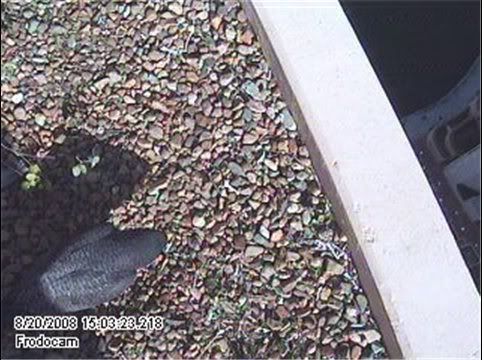
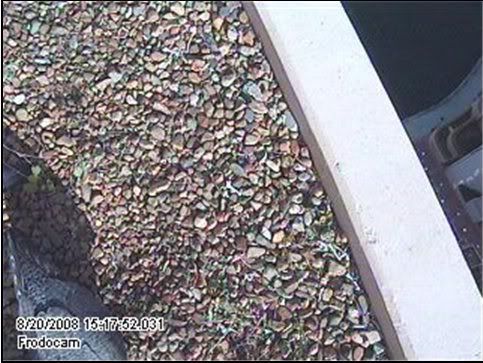
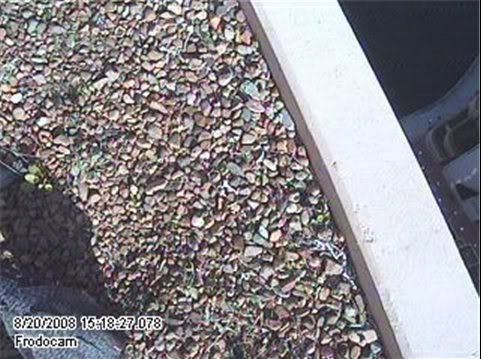
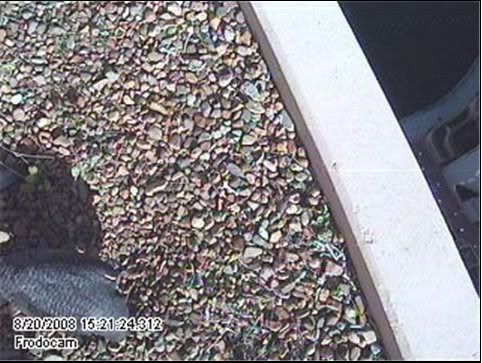
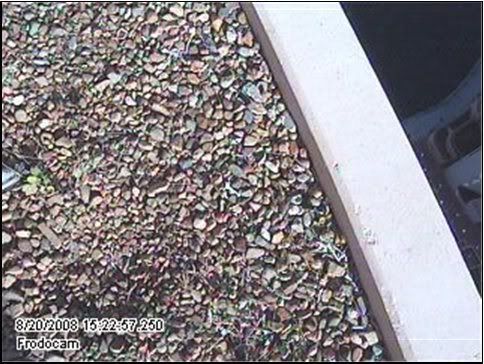
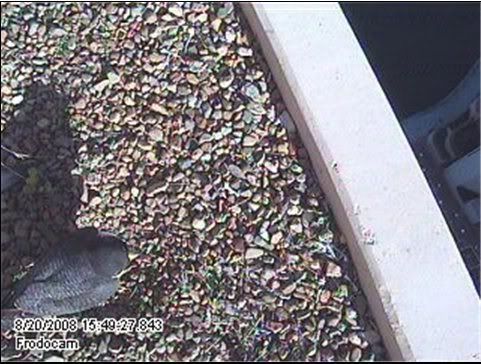
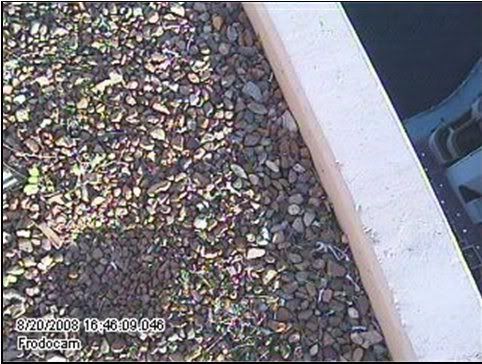
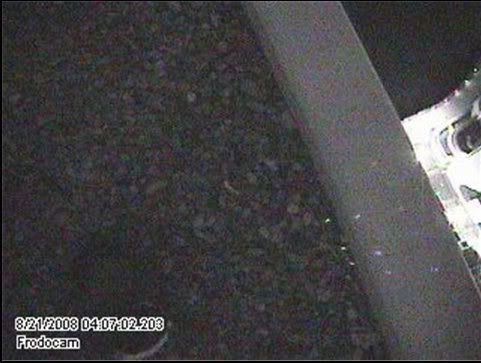
A lot of activity today at the scrape. After days without a sign of a peregrine falcon, there they were: both of them. Making the bowl even deeper and Frieda checking things out.
Last year on August 18 Frieda started egglaying. This year the signs are it will be a bit later, maybe even in the last week of August. At the Alcoa nestsite it is the same. No sign of peregrines settling down yet. Last year Alcoa came right behind Brisbane with a first egg om August 21.
In 2006 the first Frodocamegg was laid in the first week of August. What is going on this year?
Well nothing serious really. No need to worrie. As we have seen during the breeding season on the Northern Hemisphere the first peregrine egg was laid on february 22 and the last one on march 27. Things can vary a lot. When we take a look at the difference in climate we see that Europe and the US/Canada have a temperate climate. But SEQ and Victoria as well have a mild subtropical climate. So we cannot compare both when we look at the egglaying date. Moreover Australia lies much closer to the equator than Europe or the US is. So breeding can commence much sooner or even much later when the nestsite is on a high altitude like in some National Parks. The higher the altitude the colder it gets. In Kosciuszko National Park peregrine falcons have their eyrie as high as 1600 mtrs. Egglaying starts there as late as October.
So breeding "Down Under" can start as soon as late July until even as late as the beginning of November. This is due to the totally different climate conditions.
The start of the reproductive season is always interdependent to increasing daylighttime, temperature and humidity. It seems to be rather cold this spring overthere for a mild subtropical climate. And of course wildlife responds. Not only the peregrines, but all birds show not a lot of obvious breeding activity either. So it is useless for our peregrines to start breeding if there will be no young birds to catch for the fledging juvs. Egglaying is after all interdependent to the breedingactivities of preyspecies as well, of course it is.
So things will be a bit later this year. No problem at all. We will just wait and watch the cams untill that special moment when the first egg appears.










No comments:
Post a Comment